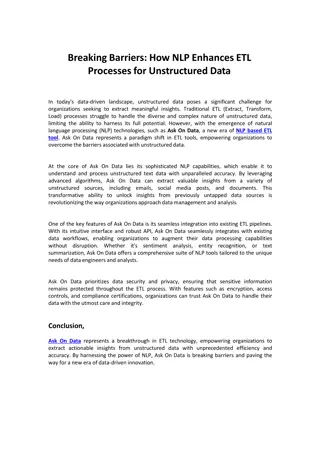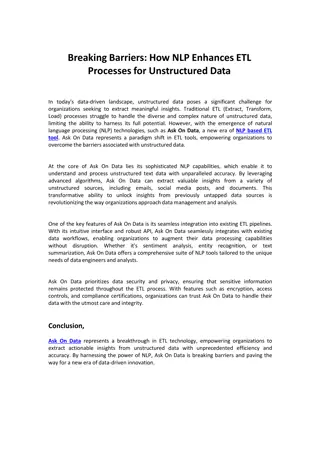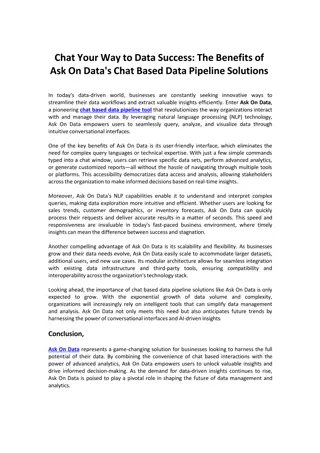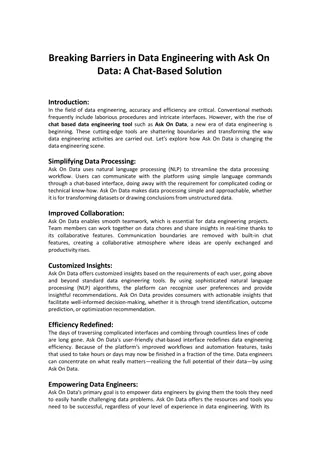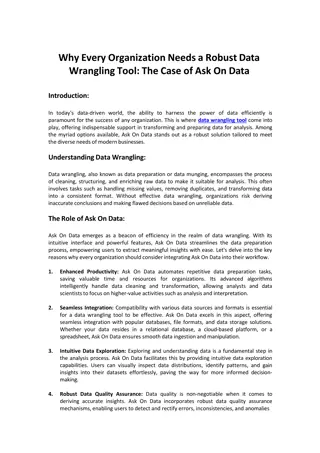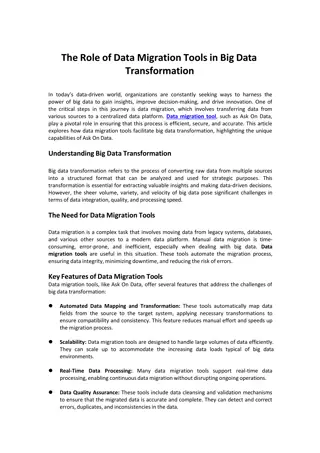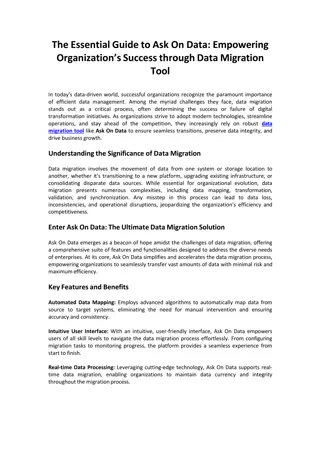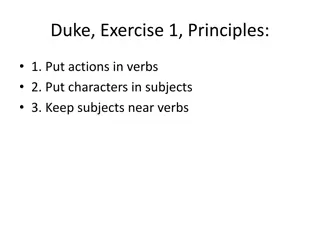Putting the Pieces Together 2018 - Ask the Expert
In Leavenworth, WA, a knowledge-sharing session took place in 2018 with expert David Rishel covering various transit-related topics. Ground rules were set, questions were addressed, and insights were shared on eligibility criteria for transportation services.
Download Presentation

Please find below an Image/Link to download the presentation.
The content on the website is provided AS IS for your information and personal use only. It may not be sold, licensed, or shared on other websites without obtaining consent from the author.If you encounter any issues during the download, it is possible that the publisher has removed the file from their server.
You are allowed to download the files provided on this website for personal or commercial use, subject to the condition that they are used lawfully. All files are the property of their respective owners.
The content on the website is provided AS IS for your information and personal use only. It may not be sold, licensed, or shared on other websites without obtaining consent from the author.
E N D
Presentation Transcript
Putting the Pieces Together, 2018, Leavenworth, WA, Ask the Expert PUTTING THE PIECES TOGETHER 2018, ASK THE EXPERT April 22, 2018
Introduction David Rishel US Navy Mayflower Contract Services New Jersey Transit Consulting APTA TRB And you are ?
Ground Rules My Goal: To teach you how to think about these questions yourselves and research the answers I m not a lawyer, I can t predict the future Don t EVER enact a policy because of what we discuss here! Never, ever Talk with your Agency counsel, your public advisory body and perhaps your regional FTA staff. DON T rely on what Triennial Consultants tell you either Putting The Pieces Together 2018
Ground Rules Keep questions confidential No best practice/what are you doing questions No questions relating to specific passenger eligibility cases General rule: You can t make a restriction because of what you think may happen; only make restrictions because of what has happened and is documented. Putting the Pieces Together 2018
#1 Q: We ve got a couple rehab facilities that some people move in and out of on a semi-regular basis. We currently tend to certify for 6 months (based on the provider s verification). Is there an issue if we were to go to a 3 year conditional eligibility, the condition being when residing in a skilled nursing facility ? We hope this will prevent some repeat applications. A: You can do this, but be careful you don t allow too much and think about how to manage this.
#2 Q: We re considering issuing no-show notices via postcard instead of mailed letter, thinking it will save some time. We d list the ride date, time, location of the missed or late cancelled ride, and a note saying excessive no shows and late cancels can result in suspension of service. On the other side we d probably have our agency name with some nice, big No-Show Notice text, along with how to file an appeal and our contact info. Would that suffice? A: I wouldn t because of privacy concerns. Postcards are also twice as slow as mail.
#3 Q: A rider has applied for eligibility based on a claim of electromagnetic sensitivity specifically sensitivity to exposure to cell phones. She states she believes the electromagnetic waves are greater in a large fixed route vehicle and that she is able to travel more comfortably on the paratransit service. (side note: she currently has conditional eligibility for cold weather conditions due to a separate mobility issue and is seeking full eligibility) Would you consider electromagnetic sensitivity a disability or condition that might qualify a person for unrestricted paratransit service or would you view it in the same manner as a chemical sensitivity to something like perfume? A: This is not a disability listed in the ADA regulations. There must be a legitimate basis for a passenger s claim of disability that can be verified by a medical professional. Putting the Pieces Together 2018
#4 Q: Reasonable Modification requests for ADA paratransit: Requesting specific vehicles due to mobility or comfort, i.e. difficulties entering or exiting vehicles. FTA guidance says vehicle specific requests may be denied due to being considered a fundamental alteration of service, but some customers face difficulties getting into and out of non-dedicated vehicles. A: This is not required by the ADA Putting the Pieces Together 2018
#5 Q: If an agency wanted to use 100% non dedicated vehicles for off peak times, would it be a problem if those vehicles did not have the same capacity as the agencies dedicated paratransit fleet? I.E. lift capabilities that still meet ADA requirements but are less than dedicated vehicles (600 lb. lift vs 800 lb. lift). A: This would probably be a problem. FTA and DoJ look for parity issues with alternative fleets. How would you manage this with clients? Putting the Pieces Together 2018
#6 Q: Collecting customer demographic data: Is there any guidance from the FTA on what agencies can or should be collecting for ADA paratransit? A: The ADA does not address this, but be sure you are not using anything like this for determinations or trip priorities. Remember you must safeguard the data you collect. Putting the Pieces Together 2018
#7 Q: We have a passenger that rides our fixed route in a powered wheelchair. He hangs very heavy bags off the back of his device, which makes it difficult to secure the device in the rear. When told about the bags making it difficult, he stated that he was going to put on more and heavier bags to make it even more difficult. Are we still required to transport the device if the customer purposefully makes it harder, if not impossible to secure? A: This sounds like a passenger behavior issue, not an ADA issue. If your policy requires securement, you may refuse transport if he is preventing this. Putting the Pieces Together 2018
#8 Q: We recently had a mother send in a Dial-A-Ride (para-transit) application for her 3 year old child who has autism. She stated that the child is unable to ride fixed route because switching buses upsets the child. Does this fall under an ADA disability and qualify the child for Dial-A-Ride? A: Yes, it could. Do you have policies on children riding transit in your system? This would be an area to consider medical verification. Putting the Pieces Together 2018
#9 Q: I would like the issue of size and weight to be addressed. I have a passenger that weighs 441lbs. Our Operators are only required to push/pull 300lbs. What is our responsibility to transport over weight passengers? A: ADA regulations require accommodation of 600 pound wheelchair/passenger combos on lifts. You must meet this minimum. You are not required to push a 600 pound wheelchair up a ramp. Putting the Pieces Together 2018
#10 Q: What is our responsibility when our passenger no shows and our bus service has stopped and expects us to come and get them? Example, we have a passenger that goes to the casino. She no shows and expects us to come back and get her when the service is no longer going in that area. A: You have no ADA obligation to get the passenger. This is outside normal operating hours. Putting the Pieces Together 2018
#11 Q: Can we request that a service animal be clean? A: This is pretty unenforceable. If a passenger has documented instances of creating a hazard to other passengers, you may have a basis to deny the passenger service after these incidents, not before. Putting the Pieces Together 2018
#12 Q: We require 100% in person interviews for eligibility and 100% of ADA customers when re-certifying. We want to interview the re-certifying ADA customers who were eligible for conditional status only. (it is now the 2nd 3-year re-certification since the interviews were started) Does this decision have ADA implications? What are factors we should consider in the re-certifying and interview process? A: This is fine. Just be sure your criteria are written down and consistent. You are not required to do recertification, so you have flexibility in how you do it. Putting the Pieces Together 2018
#13 Q: Customer on Fixed-route has asked for Reasonable Modification for his electric bike to be allowed on the bike rack. The bike weighs with the two batteries 75 lbs. The manufacturer specifications indicate a max for one bike at 55 lbs. The total weight for two bikes on the rack is 110 lbs. The customer is asking that he use the bike rack as his bike is under the 100 lbs. A: A bicycle may not be a mobility device because it can t be operated among pedestrians. It is considered a vehicle and must be on a road or bike path. However, others may differ with this opinion. Bike racks are not addressed in the ADA rules and it would be wise not to exceed their design specifications. However, the bike rack is no-doubt engineered to accommodate 200% of stated capacity. Check with the manufacturer for a waiver. How do drivers know the weight of the bicycle? Putting the Pieces Together 2018
#14 Q: Passenger has temporary full paratransit service due to a recent injury. Normally, she transports her son to his elementary school because they choose to live beyond the boundaries for him to ride the school bus. She wants Access to transport her with her son to drop him off at school and the reverse to pick him up. She understands that both return rides would not be immediate and would be a separate trip likely on a different bus taking her or them home. Since we do not provide public school transportation, what are our obligations to provide her service to and from this location? A: An eligible passenger may ride to any destination they want for any reason. She is getting the ride and taking her son as her companion. You must transport her, unless this trip is beyond your service area/time. Putting the Pieces Together 2018
#15 Q: When someone wants to have visitor status and wants to self-certify, our transit requests that the person tell us what the qualifying disability is and how it prevents bus use. i.e. vision and cant navigate an unknown bus system. Are there any guidelines through the ADA or DOT on what can be asked? A: Visitor eligibility is really based on the honor system. It is only for 21 days, after which you may require them to apply for certification. Putting the Pieces Together 2018
#16 Q: If we send a specific inquiry to a provider (for professional verification) asking specific questions and instead of responding to our questions, the provider writes a letter. Can we incomplete a process for not getting the needed information? (Not answering our questions.)? A: Technically, yes, but only if the professional really didn t answer the required question or provide the needed information, and the question about the applicant was substantive. Would this pass the 60 Minutes test? Putting the Pieces Together 2018
#17 Q: Do applicants have the right to add more information to their file afterwe ve considered an application complete? (Consider that new claims are being made that were not part of the initial application that we ve already begun to process.) Can we remove this information as unsolicited after the fact? A: You may close an application at a certain point, but if a person forgot to submit something important it would be wise to accept it, otherwise they will just appeal. If you feel they are playing the process, then use your judgement. Putting the Pieces Together 2018
#18 Q: If we must accept new information for an application, can we start a new 21-day process over each time they do this? A: Your process should have a point where it is considered to be complete, after which the 21 day clock starts. Your medical verification and other steps should be done before this official complete point. After this, you would not normally be getting additional information. Putting the Pieces Together 2018
#19 Q: Given that the whole point of the appeal process is to give an individual the right to be heard in person, do we have to have an appeal hearing and decision for an appellant who does not show for their scheduled appeal hearing? A: The hearing should go on as scheduled if the person simply does not show for their hearing, but you should be reasonable if there was some last minute problem the passenger encountered. Putting the Pieces Together 2018
#20 Q: We re considering having a first stage or step of appeal as a file review process. Can we do that? If so, it all cases? If not, can we make it a customer option? A: Multi-step appeal processes are not recommended and could be a problem, depending on how they were structured. You may have an administrative review step that could overturn an obviously wrong denial, but all other appeals should be done in a single process, being mindful of the 30 day decision window. Putting the Pieces Together 2018
#21 Q: We have individual s seeking our paratransit service for very short-term needs. For example, appointments where the doctor s office requires them to have a ride home . Does this type of an appointment or need (one that has some impact on an individual for a few hours one time or perhaps every month or two); meet the definition of a disability for paratransit service? A: Generally, No. Putting the Pieces Together 2018
#22 Q: There is a woman who is deaf and has other disabilities that affect her mobility (unspecified). She contacted our agency through our Facebook page, inquiring how to get Paratransit. She indicated that she can t speak on the phone because of her hearing disability, and her TTY phone was stolen. She was given my contact information as the Accessibility Officer. She and I engaged in a text message conversation during which she told me that she does not have a computer or printer to get the Paratransit application from our website. I offered to mail it to her, but she said that she does not have access to her mail box without Paratransit (she did not elaborate as to why). She also shared that she is in an abusive living environment. We require a medical verification from a health care provider (assuming there is no charge for it), and the signature of the applicant on the Paratransit application form. I offered to assist her with filling out the application form via text, and then mail it to her for her signature and the medical verification. I gave her names, phone numbers, and email addresses of several local social service organizations that could give her a ride to her mailbox and to a doctor s appointment, in addition to offering information about safe houses and domestic abuse shelters. She was unsatisfied with this solution. I would like to know if David, and others, have ideas as to what else can be done? In my view, this applicant s unwillingness to use resources available to her to complete the application is not due to her disability, and therefore accepting an unsigned and/or unverified application would not be a valid reasonable modification to our policies. A: The accommodations the agency made seem to have been very reasonable. If the passenger can t do any part of the application, you are not obliged to give them eligibility. Putting the Pieces Together 2018
#23 Q: We have a vision impaired customer who missed her ride at the airport because she didn t make her way to the van. With the Federal Regulations requiring the driver stay with the vehicle, what are some of the best practices for Airport pick-ups. A: Designate a clear and consistent pickup area and give the passenger communication options with dispatch and possibly the driver. Putting the Pieces Together 2018
#24 Q: A local not-for-profit agency has realized it is cheaper to have all their clients apply for ADA paratransit, rather than running their own vehicle. If the majority of their residents qualified, this would cause a huge strain on the transit agency s resources. It feels as if this centers obligation is being subsidized by tax payer monies. What is the obligation of the public transit agency to the nursing center under the ADA? A: You must transport all eligible passengers. However, you don t have to make it easy for the agency by letting them group-book or promising them group scheduling, these would be agency trips and could be provided as a premium to the agency. Putting the Pieces Together 2018
#25 Q: Does trip negotiation have to take place at the time of the first call or can it occur with a call back? For example some systems take the reservation with the first call and then after scheduling has occurred call the rider back to offer the time (that meets ADA guidelines) the afternoon before the trip occurs. A: You can do this, but be mindful of the trip time negotiation rules. Putting the Pieces Together 2018
#26 Q: A transit agency wants to install a bus stop sign to an existing bus stop. Will they be required to improve that stop to full ADA compliance? A: No. There is no absolute requirement to improve a site designated as a bus stop, but stop sites should be selected that will be as accessible and safe as possible. If a site is improved then it must fully meet the ADA requirements. Putting the Pieces Together 2018
#27 Q: Do sidewalks that intersect driveways require truncated cones the way that sidewalks that end at the street do? A: This is a question relating to the USDoJ rules, but I do not believe so. Check with the Justice Department. Putting the Pieces Together 2018
#28 Q: If we transport a passenger who no-shows on the return trip home, and then we never get a call from them and cannot reach them at home or by cell, what is our obligation? How long do we have to keep a driver on the road with the chance they may call for their return trip? I have kept drivers up to the end of our service hour and they have sat doing nothing waiting for that possible call for the return trip. A: Under the ADA, you do not have an obligation to a passenger who no-shows for a trip. Putting the Pieces Together 2018
#29 Q: We have passengers that have heavy chairs and with their combined weight, have disabled our lifts. So two questions regarding this - a) Do we continue to let them ride and break a lift each time? We are scared that they could be injured. What is our requirement? I've been told we try anyways. This is a safety concern for all of us. b) After discovering that they cause the lift to tip on its side or disable it completely, we have coded the passenger as riding on for certain buses only in scheduling once we found this out. Right now I have a list of 9 passengers that can only ride on certain buses. What happens when these buses are out of service and we do not have a vehicle that can transport them with their chair? (We have offered some to ride the lift separately from their chair; some will take a manual chair instead of power chair.) We have never had any denials. A: The FTA guidance here has been mixed. Recently, they have said that you don t have to transport if the combined weight exceeds the manufacturer s standards. If you have a lift that can do beyond the ADA, then you must accommodate that combined weight. If you have a mixed fleet and you can accommodate managing the vehicle type to match the passenger, then good. If you are full because your max-weight fleet us being used, then that may be a capacity constraint. Putting the Pieces Together 2018
Additional Questions? Putting the Pieces Together 2018
Wrap up: Run everything by: Your agency counsel FTA Regional Office Public Advisory Board David Rishel Davidrishel@gmail.com Thank you! Putting the Pieces Together 2018


